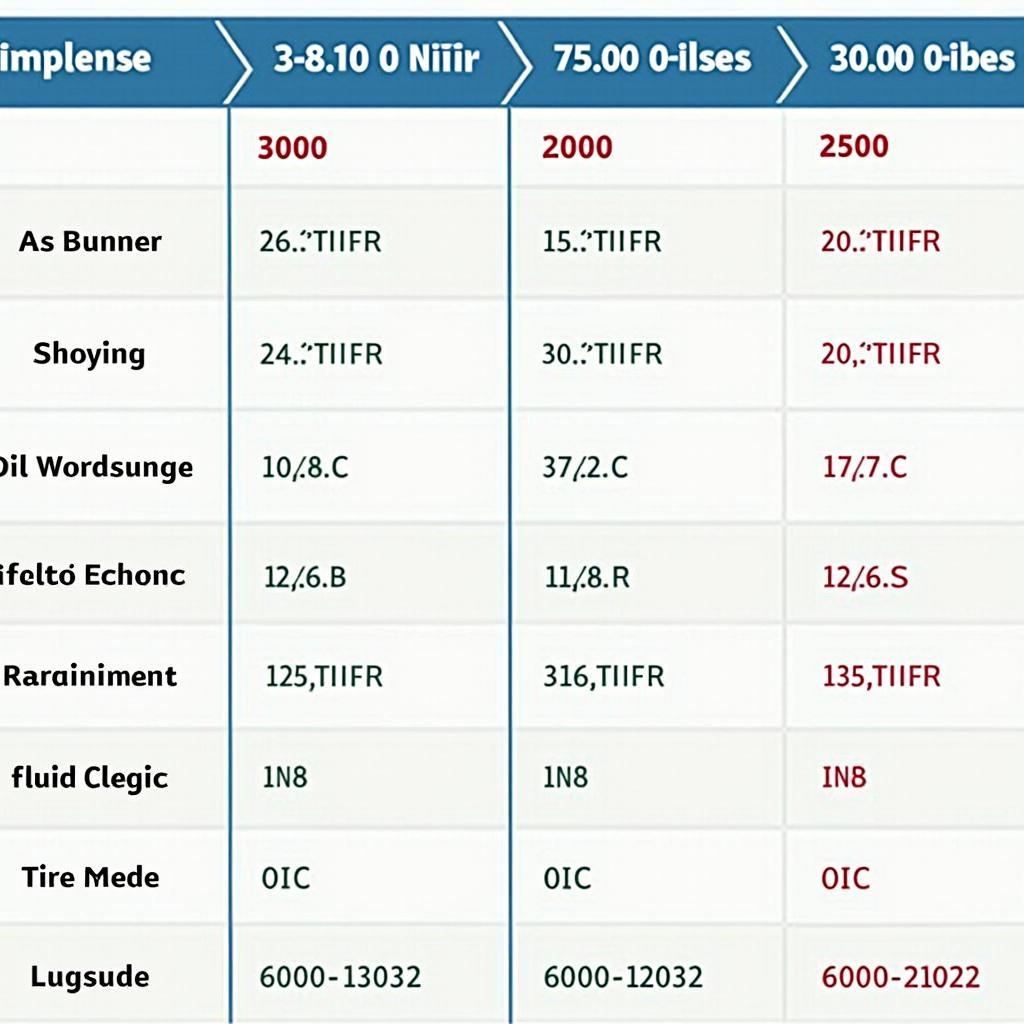Maintaining your car in peak condition goes beyond just filling the gas tank and occasionally washing it. Regular car servicing is crucial for ensuring your vehicle’s longevity, reliability, and safety. But how often should you actually take your car in for a service? This comprehensive guide delves into the factors influencing car service frequency and provides expert insights to help you keep your vehicle running smoothly.
Factors Affecting Car Service Frequency
While car manufacturers provide recommended service intervals, several factors can influence how often your car actually needs to be serviced:
- Vehicle Age and Mileage: Newer cars generally require less frequent servicing than older vehicles with higher mileage. As cars age, components wear down, increasing the likelihood of issues.
- Driving Conditions: Frequent stop-and-go city driving, driving in extreme temperatures, or hauling heavy loads can put additional stress on your vehicle, necessitating more frequent servicing.
- Driving Style: Aggressive driving habits, such as rapid acceleration and hard braking, can accelerate wear and tear on your car’s components.
- Vehicle Type: High-performance cars or those used for off-roading often require more frequent and specialized servicing due to the increased stress on their systems.
Understanding Manufacturer Recommendations
Car manufacturers outline recommended service intervals in the owner’s manual. These intervals are typically expressed in time or mileage, whichever comes first. For example, a common service interval is every 6 months or 7,500 miles.
It’s crucial to adhere to these manufacturer recommendations to maintain your car’s warranty and ensure its optimal performance.
Common Car Service Intervals and What They Entail
Here’s a general overview of common car service intervals:
- Every 3,000 Miles or 3 Months: This basic service usually involves an oil change, oil filter replacement, and a general inspection of vital fluids, lights, and tire pressure.
- Every 6,000 Miles or 6 Months: In addition to the basic service, this interval may include air filter replacement, cabin air filter replacement, and a more thorough inspection of brakes, belts, and hoses.
- Every 12,000 Miles or 12 Months: This service level often involves replacing the spark plugs, inspecting the suspension system, and checking the battery’s health.
- Every 30,000 Miles: Major services at this mileage milestone typically include replacing the fuel filter, transmission fluid, and coolant. A comprehensive inspection of the entire vehicle is also performed.
Signs Your Car Needs Servicing Sooner
While adhering to recommended service intervals is essential, sometimes your car might need attention sooner. Be on the lookout for these warning signs:
- Unusual Noises: Any new or unusual sounds coming from your car, such as grinding, squealing, or knocking, warrant immediate attention.
- Warning Lights: Never ignore dashboard warning lights, as they often indicate a problem that requires professional diagnosis.
- Fluid Leaks: Puddles of fluid under your car could indicate a leak in the engine oil, coolant, transmission fluid, or brake fluid.
- Changes in Performance: If your car experiences reduced fuel efficiency, difficulty starting, or sluggish acceleration, it’s time for a service.
The Importance of Regular Car Servicing
Regular car servicing offers numerous benefits:
“Regular car servicing is an investment, not an expense,” says John Smith, a senior mechanic with over 20 years of experience. “It not only prevents costly repairs down the road but also ensures your safety and the optimal performance of your vehicle.”
- Increased Safety: Regular servicing helps identify and address potential safety hazards before they become major issues.
- Improved Fuel Efficiency: A well-maintained engine runs more efficiently, saving you money on fuel costs.
- Extended Vehicle Lifespan: Routine maintenance can significantly extend the lifespan of your car by preventing premature wear and tear.
- Higher Resale Value: A well-maintained car with a complete service history commands a higher resale value.
Conclusion
Knowing how frequently your car should be serviced is crucial for its overall health and your peace of mind. By following manufacturer recommendations, being aware of warning signs, and seeking professional servicing when needed, you can keep your car running smoothly for years to come. Remember, regular car servicing is an investment that pays off in the long run.
Frequently Asked Questions about Car Servicing
1. Can I service my own car?
While some basic maintenance tasks can be performed at home, it’s generally recommended to have your car serviced by a qualified mechanic, especially for more complex procedures.
2. What happens if I miss a scheduled car service?
Missing a scheduled service could void your car’s warranty and potentially lead to more extensive and costly repairs in the future.
3. How do I find a reputable car service center?
Look for certified mechanics, ask for recommendations from friends and family, and read online reviews to find a trustworthy service center.
Need expert assistance with your car’s air conditioning system? Learn how to service car air conditioner or find out how often should car aircon be serviced in our detailed guides.
4. What is included in a pre-purchase car inspection?
A pre-purchase inspection thoroughly examines a used car’s condition before you buy it, helping you make an informed decision.
5. How much does car servicing cost?
The cost of car servicing varies depending on the make and model of your vehicle, the type of service required, and the labor rates in your area.
For any car service needs or expert advice, reach out to our team via WhatsApp at +1(641)206-8880 or email us at [email protected]. We’re available 24/7 to assist you!


